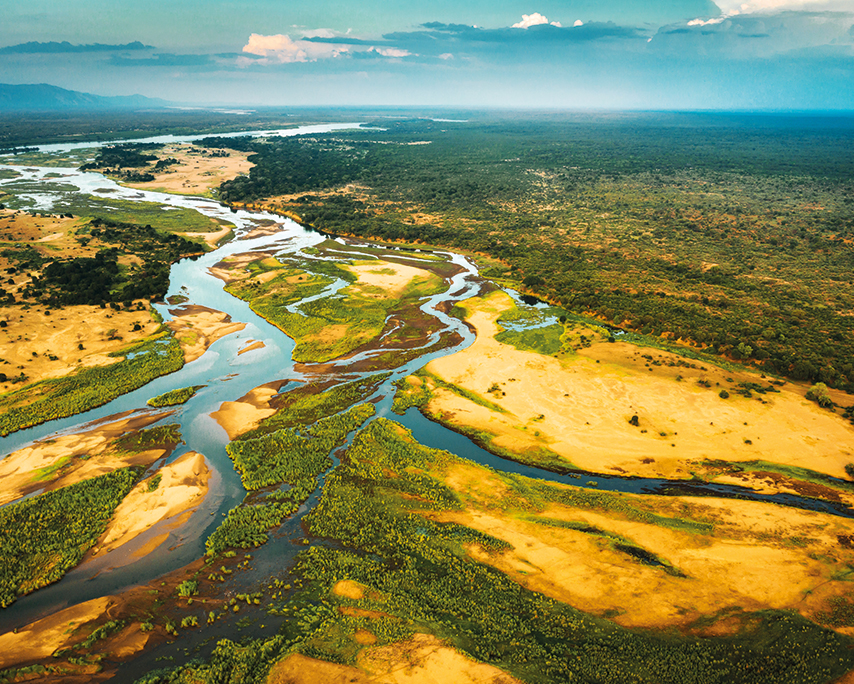World Day to Combat Desertification and Drought
How neglecting rivers drives desertification in Africa
We all know how the story goes: when the rains fail, we cry ‘drought.’ We count livestock losses, we watch our crops shrivel, we rush for food aid. But what if we are looking in the wrong direction? What if the slow drying of our rivers, the choking of our wetlands, and the careless destruction of our catchment areas are the real crisis?
In many African countries, you can trace a river from its source in the highlands to its mouth at the sea, and along that journey, you will see the story of both abundance and neglect. Our rivers begin in green places: the Mau Forest in Kenya, the Ethiopian Highlands feeding the Nile, the Rwenzori Mountains in Uganda, the Congo Basin’s rainforests. These places are sacred, not just spiritually but ecologically. They collect rain like a basket and release it slowly into our rivers. When we cut those forests down or encroach with settlements, we are not just damaging a forest but cutting the throat of the river.
Now, how many of our river sources are protected with the seriousness they deserve? Too few. We are too quick to build on wetlands, too eager to farm on riverbanks, too slow to invest in afforestation and catchment restoration. These actions may yield short-term gains, but they create long-term pain. Drought and desertification do not announce themselves overnight. They creep in as rivers run thinner, soils turn to dust, and water tables fall.
It is not that we do not know. The knowledge is there. The science is clear. The traditional wisdom of our elders is still alive. What we lack is the political will and public awareness to make water stewardship a national and continental priority.
The injustice of it all is that in many rural African communities, women and children walk long distances to fetch water, even as some industries and wealthy estates have 24/7 taps. Rivers are diverted, over-extracted, or polluted without consideration for downstream users. The people who suffer most are those who contribute the least to the problem.
In cross-border river systems like the Nile, the Niger, the Zambezi, how many of our leaders are sitting down at the table with long-term cooperation in mind? Instead, we see water politicised, with each country treating its rivers as its own. But rivers know no borders. They need a basin-wide approach. Africa must learn to manage its shared water like a shared treasure, not a private stash.
What is the way forward? We need a shift in mindset. Protecting river sources is not a hobby for conservationists. It is a national security issue. Our governments must invest in watershed protection, enforce land-use laws near water bodies, and incorporate rivers into climate adaptation strategies. Our schools must teach the importance of water conservation. Our media must shine a light on water mismanagement. Our communities must be mobilised to protect local springs and wetlands.
If we do not act now, our children will ask why we let rivers dry up when we still had time. Why we sold trees that held the rain. Why we stayed silent as the lifelines of our continent were choked one by one. Africa is not poor in rivers. But it is dangerously poor in action. Let us change that before the rivers forget the way to flow.



